Positioning and finding a scalable business model – Throwback to Fusion Stellar: Session II
From our blog / Article
In the constantly evolving consulting landscape, only businesses that successfully carve out their market niche thrive. Yet most firms' ambition extends beyond mere survival. But how can a service-based business scale? What elements of a consulting firm are even scalable? These crucial questions were at the heart of our second Fusion Stellar session. This blog post reflects on insights shared by Heikki Härkönen, Managing Director of Fusion Ecosystem, and features real-world stories from Nieve and Rebel App Studio, two standout companies within the Fusion Ecosystem.
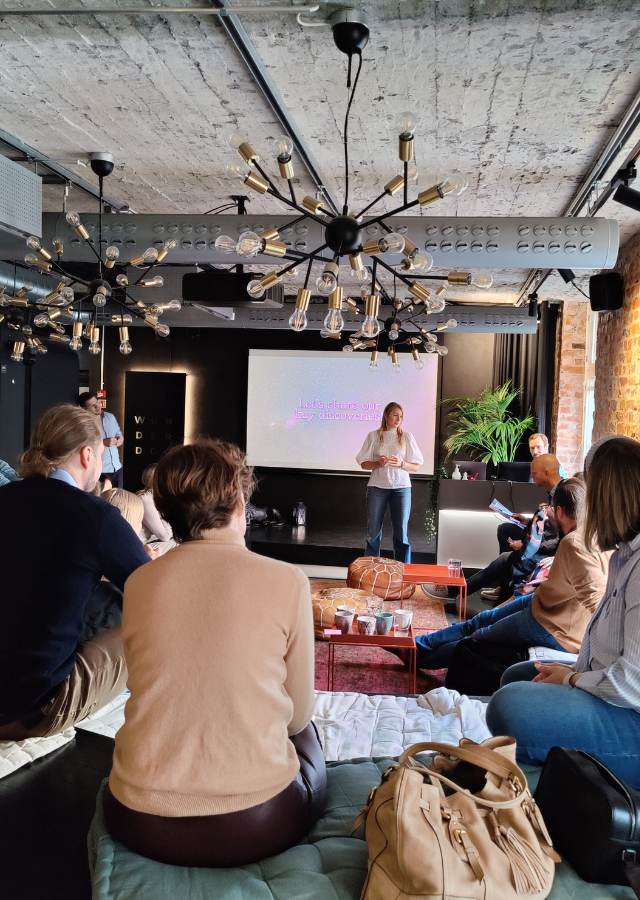
Are consulting businesses scalable in the first place?
Growth is a universal ambition for businesses, yet scalability presents a distinct challenge, particularly in the consulting sector. Heikki Härkönen opened the session by challenging attendees to consider what scalability truly means and its prerequisites. Traditional growth in consulting is often achieved by expanding the team to serve more clients, a straightforward approach where costs and revenues rise linearly. In contrast, scalability implies increasing revenue without proportionately increasing costs, thereby altering the cost structure favorably and achieving a predictable return on investment.
“Professional services company is inherently unscalable.” – Heikki Härkönen
When a business’s assets are tied to people and their expertise, scaling becomes more complicated compared to a product business because revenue is typically interlinked with the work performed, and the production capacity scales through the size of the team.
Instead of paying your way to growth and investing more money without increasing ROI, Härkönen advises focusing on scalable elements within consulting firms, such as back-office operations, customer experience, project management processes, and continuous training and development.
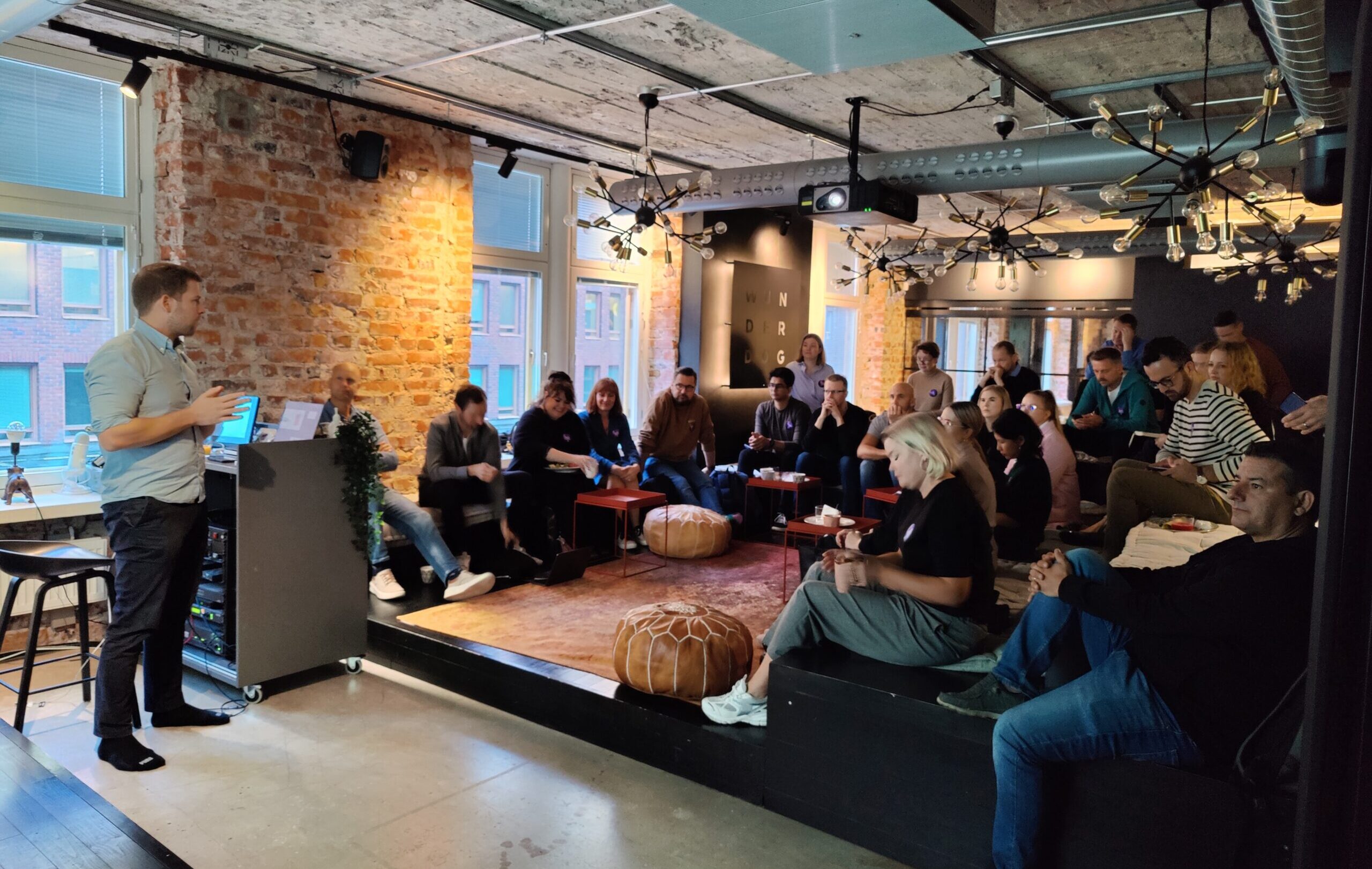
Driving scale in professional services
For a professional services firm to scale effectively, it must first ensure market relevance and differentiation from competitors. Härkönen offered six strategies for scaling in professional services:
1.Be thorough in positioning yourself in the market
As Harvard professor and author Michael Porter bluntly stated, you have two options: either differentiate yourself clearly from the competitors or become a low-cost player. Especially in the beginning, finding your niche can be a bumpy ride and lead you in unexpected directions—if you’re agile enough to adjust your offering to evolving markets. Be sensitive to market changes and respond promptly without becoming too attached to the initial business idea.
2.Break the link between revenue and effort
Scaling is difficult if you’re entirely focused on providing external resources to your customers. Instead, focus on creating customer value and adjust your billing accordingly. When your brand is strong enough, you can earn the right to charge a higher price for the same services.
3.Keep fixed costs reasonable and the back office operations lean and value-driven
Ensure the back office can adapt to a scaling front office. The front office should be able to scale at a faster pace than the back office—avoid bloating by monitoring workload and reacting proactively.
4.Nurture long-lasting customer relationships
Growing existing accounts reduces the cost of sales operations and brings stability to the cash flow, hence, the business. Customers who have stayed with you for years are also more likely to become your advocates and spread positive word of mouth to other potential customers—again reducing the sales costs.
5.Optimize your business model to suit your positioning in the market
In the long run, having your team consist only of senior consultants is probably not best for your cost structure. Using mixed seniority in teams not only allows you to use a blended hourly rate but also provides juniors with a place to grow their seniority. To keep the cost structure lean, consider different salary models to balance out the risk of having people on the bench, and don’t forget to explore the options of nearshore, offshore, and subcontractors.
6.Develop a sufficient culture of transparency in your company
Make your employees understand the drivers of your business, its strengths, and weaknesses. What may seem self-explanatory to you as a business leader might need to be said out loud to your staff. Small actions can have a massive impact; for example, opening the financials to a reasonable extent can create a new boost for individuals to work harder towards common goals.
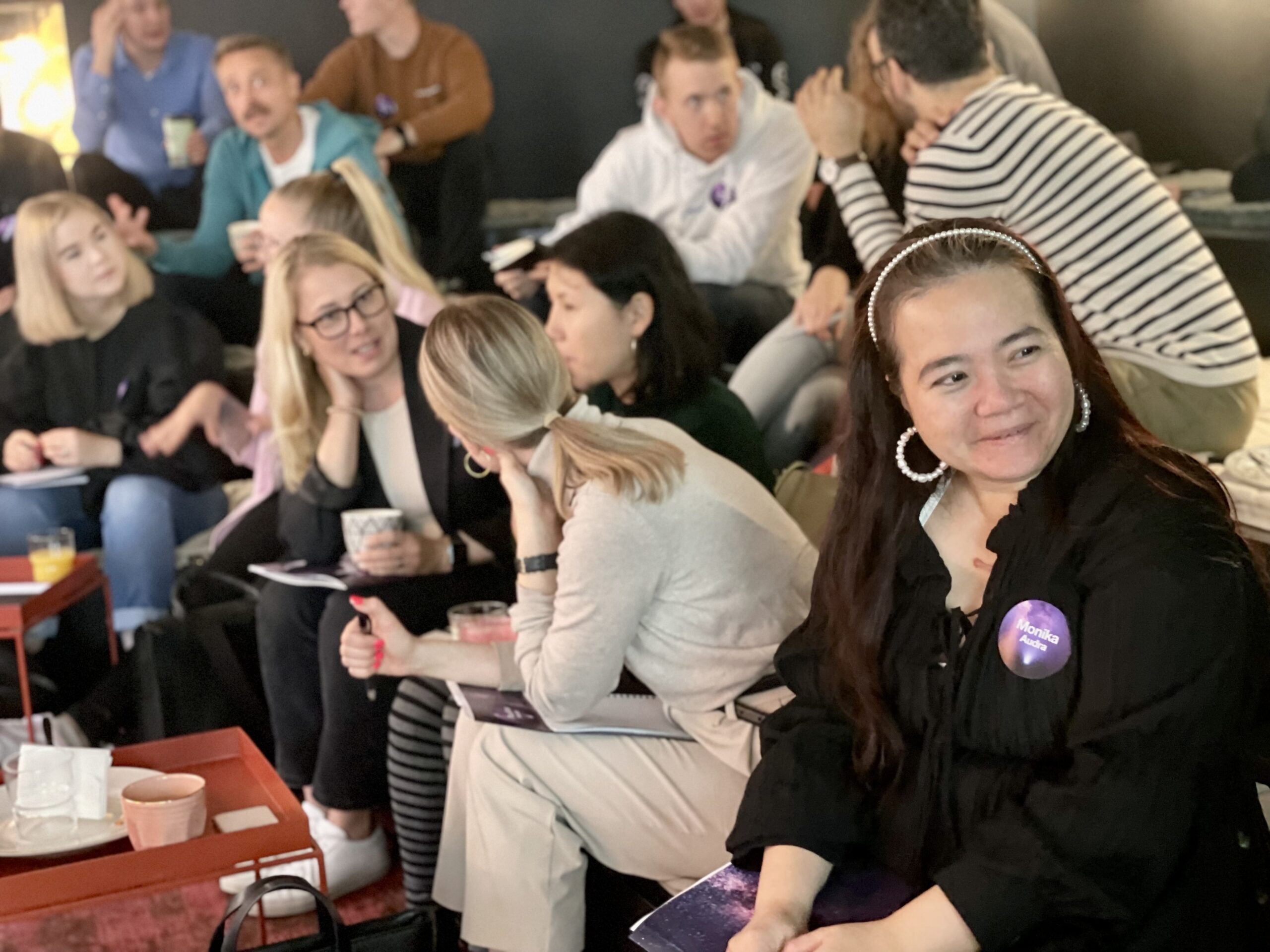
Case Nieve: Adapting swiftly in a rapidly evolving market to refocus their business strategy
Nieve’s journey commenced when two entrepreneurs, Mikaela Nyman, with a strong background in communications and marketing, and Daniel Arroyo, deeply rooted in the IT industry, crossed paths in Spain. Nyman, who had played a pivotal role in scaling a digital marketing agency from around ten experts to nearly 130, and Arroyo, eager to launch another venture, combined forces.
Initially conceived as a conventional software development firm relying on subcontractors, Nieve quickly adapted as market dynamics shifted. The unfeasibility of their subcontracting strategy prompted a strategic pivot from software development to IoT-related services and subsequently to generative AI (GenAI) as the technology began to gain traction rapidly. Seizing the opportunity, Nieve fully embraced GenAI, dedicating their resources to this emerging field.
Today, Nieve assists clients in uncovering GenAI’s potential and supports the development of proofs of concept, pilot projects, and scalable solutions. Nieve aspires to be recognized as the premier provider of GenAI solutions, known for its exceptional quality of work and forward-thinking approach.
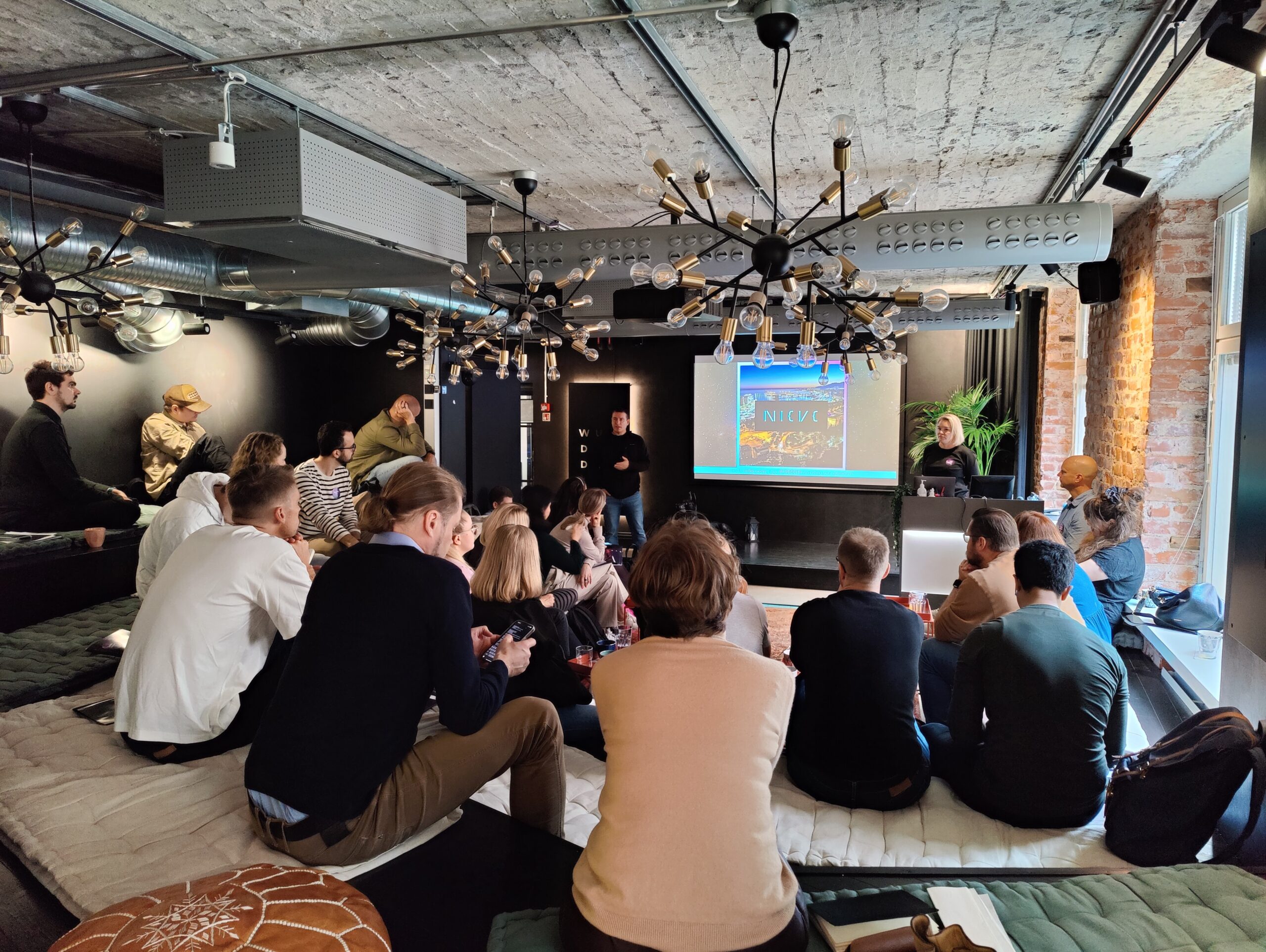
Case Rebel App Studio: Pushing hard to become the leading Flutter consultancy
Toni Piirainen, co-founder and CEO of Codemate and Rebel App Studio, is a founding member of 15 companies across Finland, Thailand, Bangladesh, and Singapore. Having explored the benefits of offshoring in Asia, Piirainen returned to Finland to focus on expanding Codemate’s local team due to the growing demand for local partnerships. Currently, Codemate operates as a technology agency with 85 employees across three offices, including one in Bangkok.
Rebel App Studio was born out of an internal project at Codemate aimed at exploring Google’s emerging app technology, Flutter. The team’s enthusiasm for Flutter led to a decisive commitment to excel in this area. Beyond developing commercial applications, they actively contributed to the open-source community, enhancing the framework and elevating Codemate’s profile in the process.
This dedication bore fruit, capturing Google’s attention, leading to an invitation to Google I/O, and securing Google as Codemate’s direct client to refine the developer experience for Flutter DevTools. Recognizing the distinct identity of their Flutter consultancy, it was separated from Codemate and established as Rebel App Studio. This strategic move clarified Codemate’s offerings and allowed both brands to thrive in their respective niches, securing engagements with high-profile clients, including Codemate’s long-standing collaboration with Netflix since 2020 and the development of highly-rated applications for Burger King Finland by Rebel App Studio.

Find your niche—and own it
Every company’s journey to finding and owning its market niche is unique. By analyzing and learning from the positioning strategies of successful firms, businesses can identify distinctive elements to apply to their own models. Try out this exercise from the Fusion Stellar session:
1.Choose a professional services company that has effectively positioned itself in the market or aligns with your business idea.
2.Describe the core of the company’s positioning: What strategy has it adopted to position itself? What elements make its positioning distinctive?
3.Reflect on what you can learn from this company’s positioning strategy. Are there elements you can apply to your own business idea or lessons that could benefit your future entrepreneurial endeavors?
In summary, scaling a service-based business requires agility, keeping an eye open for potential repositioning, active sales engagement, and finding and owning your niche. Stay tuned for our next throwback article on building a thriving team, and revisit the key takeaways from our first session on creating an inspiring company narrative.
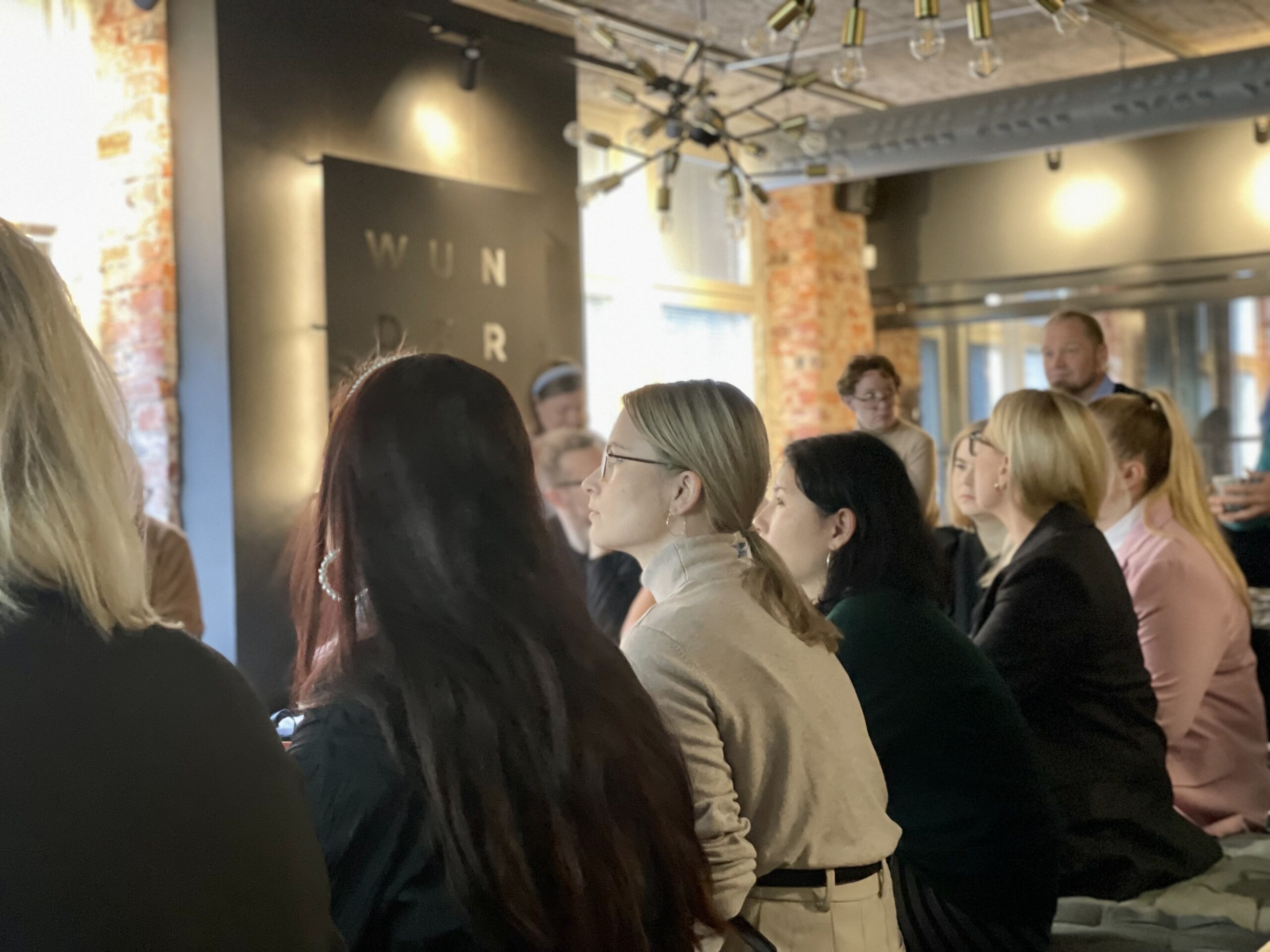
About the Author
Riikka is Investment Director and Co-founder of Fusion Ecosystem, leading the way in co-founding initiatives and serving as board member in various Fusion companies. With a background in management consulting within the tech industry, Riikka brings a wealth of expertise to her role. Riikka earned her PhD in business agility and strategic risk management in uncertainty from Tampere University. On her free time, she is an active sportswoman and enjoys marathons and ultra marathons, cycling and tennis.
Want to know more?
Connect with us.




